Contents
Guide

An Imprint of Simon & Schuster, Inc.
57 Littlefield Street
Avon, Massachusetts 02322
www.SimonandSchuster.com
Copyright 2020 by Simon & Schuster, Inc.
All rights reserved, including the right to reproduce this book or portions thereof in any form whatsoever. For information address Adams Media Subsidiary Rights Department, 1230 Avenue of the Americas, New York, NY 10020.
First Adams Media hardcover edition January 2020
ADAMS MEDIA and colophon are trademarks of Simon & Schuster.
For information about special discounts for bulk purchases, please contact Simon & Schuster Special Sales at 1-866-506-1949 or .
The Simon & Schuster Speakers Bureau can bring authors to your live event. For more information or to book an event contact the Simon & Schuster Speakers Bureau at 1-866-248-3049 or visit our website at www.simonspeakers.com.
Interior design by Priscilla Yuen
Interior illustrations by Eric Andrews; images Simon & Schuster, Inc.
Cover design by Frank Rivera and Priscilla Yuen
Cover images Simon & Schuster, Inc.
Library of Congress Cataloging-in-Publication Data
Names: Jones, Katina Z., author.
Title: The little book of feng shui / Katina Z. Jones.
Description: Avon, Massachusetts: Adams Media, 2020.
Includes index.
Identifiers: LCCN 2019039411 | ISBN 9781507212462 (hc) | ISBN 9781507212479 (ebook)
Subjects: LCSH: Feng shui.
Classification: LCC BF1779.F4 J664 2020 | DDC 133.3/337--dc23
LC record available at https://lccn.loc.gov/2019039411
ISBN 978-1-5072-1246-2
ISBN 978-1-5072-1247-9 (ebook)
Many of the designations used by manufacturers and sellers to distinguish their products are claimed as trademarks. Where those designations appear in this book and Simon & Schuster, Inc., was aware of a trademark claim, the designations have been printed with initial capital letters.
Contains material adapted from the following title published by Adams Media, an Imprint of Simon & Schuster, Inc.: The EverythingFeng Shui Book by Katina Z. Jones, copyright 2002, ISBN 978-1-58062-587-6.
Introduction

Feng shui is often thought of as the practice of moving furniture around to attract wealth, but it is so much more than that. Feng shui is about bringing your home and possessions into balance and harmony with the positive energy of the universe. Doing so brings you greater happiness, prosperity, and peace, generating an overall sense of well-being.
The Little Book of Feng Shui will walk you room by room through your home, workspace, and outdoor areas and demonstrate how to get rid of unnecessary clutter and arrange your belongings in ways that will allow positive energy and chi to flow through. From your living room and kitchen to your bedroom and bathroom, this book will show you how to maximize your spaces to attract the best energy possible and give you solutions for when you come across a problem that is blocking good energy from coming into your life.
This compact, practical, and easy-to-understand guide will lead you through all you need to know to enrich your home and life with the benefits of feng shuiwithout taking up all of your time. Feng shui can bring an intentional harmony to your home, creating a balance between nature and man-made items that allows you to receive all the positive things the universe has to offer you!
PART 1

FENG SHUI BASICS
Chapter 1
The Fundamental Feng Shui
From its literal translation, feng shui means wind and water. Wind moves the invisible life force of feng shuichiand water retains or cultivates it. An ancient Chinese system, feng shui teaches people how to create harmony between nature and man-made structures. The belief was that this intentional harmony would ultimately balance out the world, bringing peace and prosperity to all.
A History of Feng Shui

Feng shui, or the practice of arranging possessions and surroundings so that they are in balance and harmony with the positive energy of the universe, began thousands of years ago in ancient China. Back then in southern China (a rich, fertile region filled with mountains, rivers, valleys, and farms), the art of feng shui was born out of necessity. There was a definite need among the people to determine the best and most auspicious places for their homes, altars, and burial grounds. The burial sites were particularly important to the people, since they relied heavily upon the energy of their ancestors for everything from good crops to spiritual guidance and assistance with prosperity.
To these primitive yet wise rural people, everything spiritual and ethereal had its earthly correspondent in natureand everything in nature could be carefully directed to assist in the achievement of earthly goals. What were (and are) those goals? Simply put, to achieve a positive flow of energy, a balance of yin and yang, and an interaction of the five elements.
Feng shui means, literally, wind and water. The practice of feng shui relates to the positive flow of energy through your indoor, outdoor, and spiritual surroundings. It isnt just about moving furniture around to attract wealth!
Although we are many miles and several centuries away from the original feng shui masters, we share a common belief today that external factors affect our internal landscapes, whether for good or ill.
We know that there are invisible cosmic forces that govern all thingshumankind, nature, and the universeand the main goal of feng shui is to learn to move gracefully within this flow. Its definitely not a religion, and its not about moving some stuff out of your house so you can go get more stuff. In feng shui, its the energy or chi that counts most, followed by good intention and personal integrity. It requires an open mind, but also one that can take an objective and honest look around at its surroundings and be ready to give up in order to receive.
Do you need to practice the principles of good feng shui in every single room of your house? No, you dont. But rememberthe more you create using feng shui principles in your life, the better your overall results are likely to be.
The Feng Shui Schools

Today, there are many different methods that practitioners use to help others move their possessions and elements in the right direction. But there are only three basic schools of feng shui:
FORM SCHOOL
The Form School began in rural southern China and focuses on the lay of the land (i.e., landforms), water formations, and the topography of the land. Practitioners of this school will generally spend most of their time evaluating the lot your home is situated on and the relationship of each area of your home to the land surrounding it.


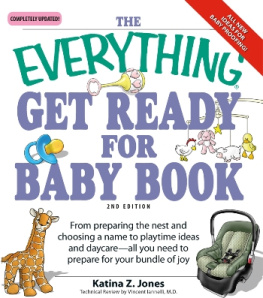

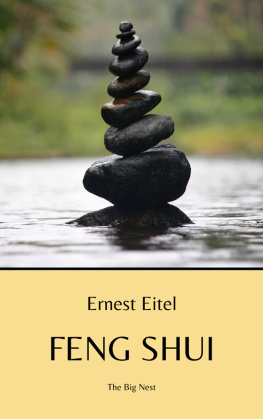
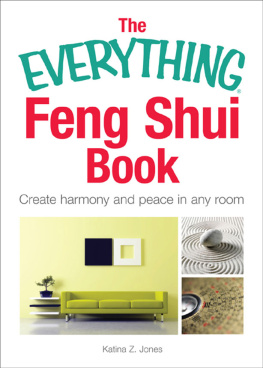
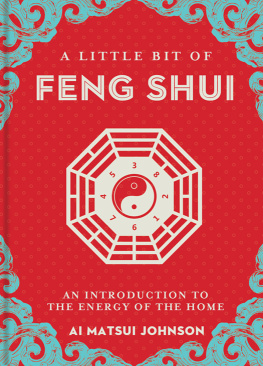


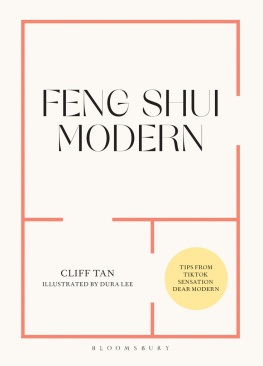
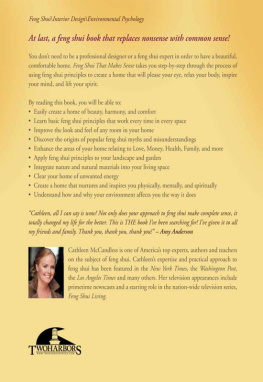
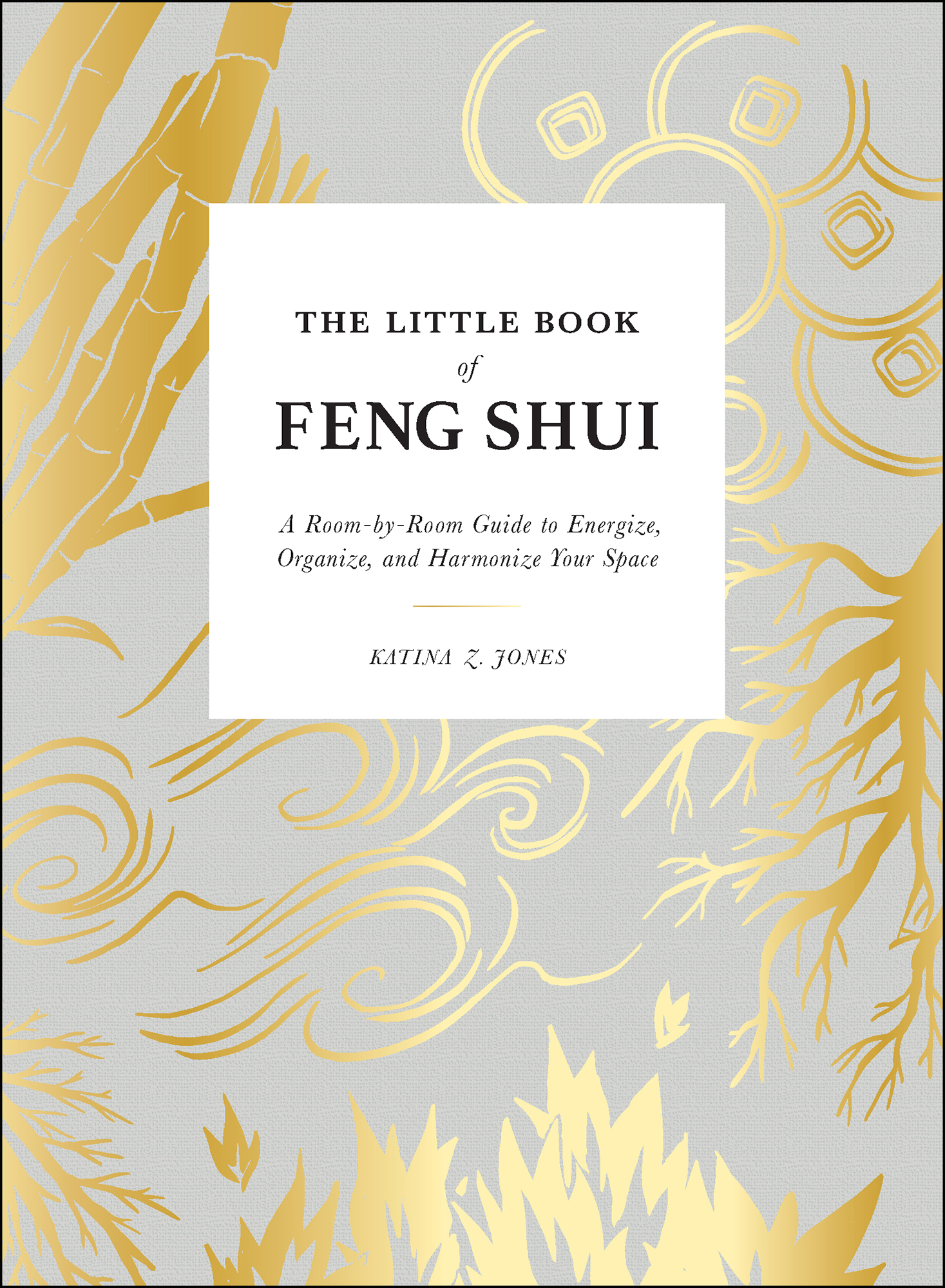



 FENG SHUI BASICS
FENG SHUI BASICS